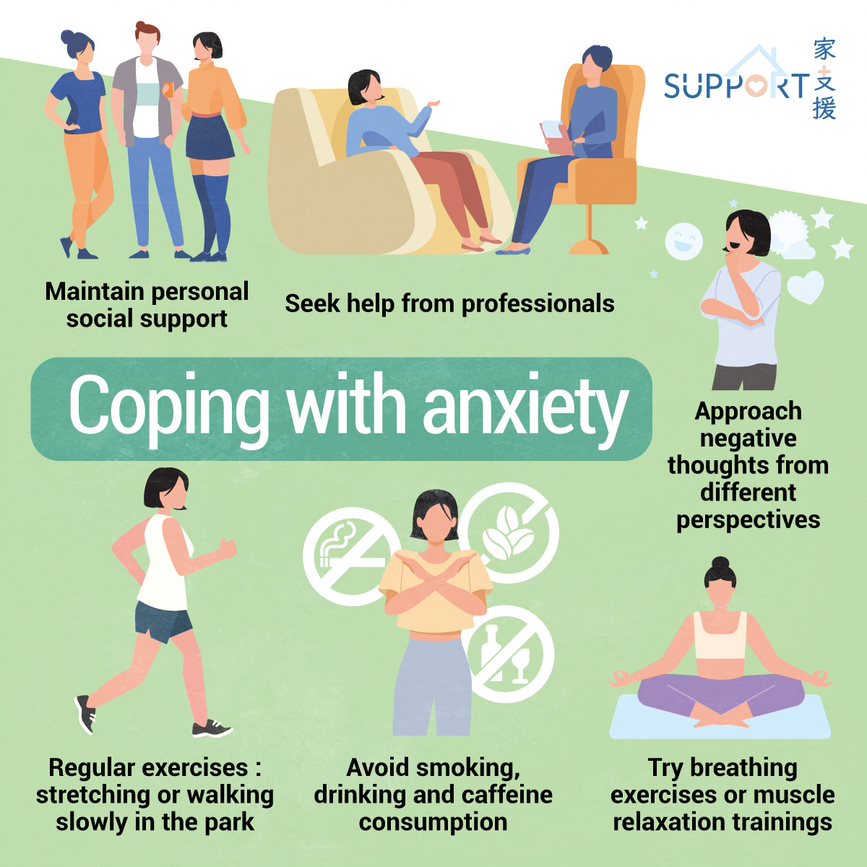
Cancer and its treatment are stressful and worrying for each family. Some anxiety is healthy, but don’t allow anxiety to take over your life. These guidelines can help you regain control over anxiety.
Anxiety is a feeling of fear or anticipated harm accompanied by fearful thoughts about future events. Panic attacks can feel suffocating and amplify your heart rate, causing cold sweats, shaking, and the desire to escape. Intrusive worrying thoughts interfere with daily activities and disrupt sleep. Memory, concentration, and confidence are also affected.






